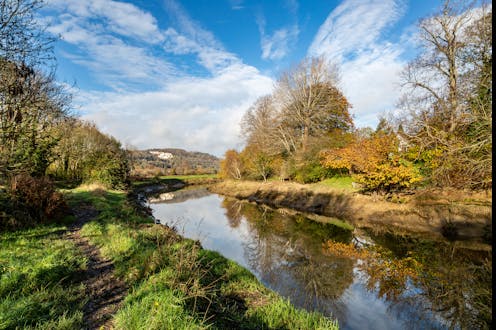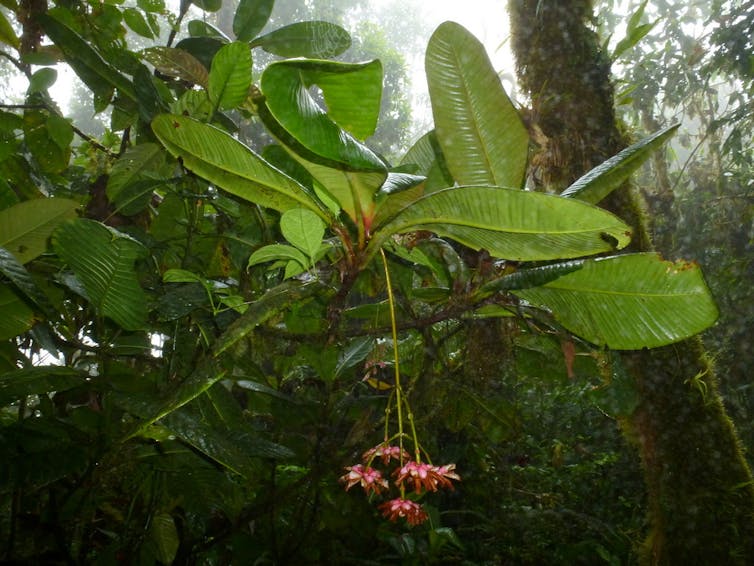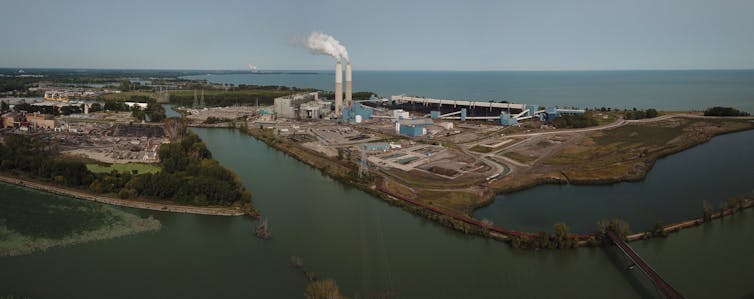
A district council in England has passed a motion to grant its local river the rights to flow freely, to be free from pollution and to enjoy its native biodiversity. The move by Lewes District Council in East Sussex to recognise the fundamental rights of the River Ouse is the first of its kind in the UK.
The Ouse (not to be confused with larger rivers of the same name in Yorkshire and East Anglia) flows southwards for 35 miles into the English Channel and suffers from the usual problems afflicting many rivers in the UK: chemical pollution, sewage dumping and so on.
As a legal academic who researches exactly these sorts of rights, I was excited to see the news from Lewes (even if the council’s motions ultimately can’t overrule national laws). But simply granting a river some rights isn’t enough. We now need to think about who will actually defend these rights.
This may mean appointing someone to represent the rights of the river. Who these representatives are, and how they think about nature and conservation, can be as important as the granting of these rights in the first place.
Appointing representatives who care about their own personal and property interests would be a grave mistake, as would appointing anyone who prioritises the rights of humans to a healthy environment over a more intrinsic right of nature (remember: the idea is that the River Ouse has rights in itself and shouldn’t need to demonstrate its worth to humans).
As further rivers, lakes, forests and more are granted rights like the Ouse, we’ll need to train up an army of people willing to represent the rights of nature.
Natural entities should have legal rights
The law professor Christopher Stone pioneered the rights of nature concept back in the 1970s. He argued that natural entities, like rivers or forests, should have legal rights and that a “guardian” or representative should be appointed to defend those rights in court when they are threatened.
Some legal systems have adopted this model. For example, in New Zealand, the Whanganui River was granted legal personhood, and two “human faces” were appointed to act and speak on its behalf. Their duties are outlined in a 2017 act, which specifies that these representatives must have the skills, knowledge and experience needed to effectively advocate for the river’s rights.

But even as rights of nature are being considered in many countries, there is still little consideration of who will represent these rights effectively. For instance, back in 2008 Ecuador became the first country to grant the rights of nature in its constitution. However the constitution states that “all persons” are representatives of the rights of nature. This is simply impractical: we can’t expect every citizen to truly care about the rights of nature.
Efforts to apply the rights of nature in Ecuador have often failed. Legal challenges can become highly politicised and there is little legal infrastructure beyond general constitutional principles.
For example, in a case brought after road builders had dumped material into the Vilcabamba River, plaintiffs claimed to represent nature in court. However, they were not genuinely advocating for the river’s rights – their main concern was protecting their downstream property.
An ecocentric perspective
Ultimately, defending the rights of nature in court will be a struggle if the nature in question – the river, forest or lake – is not represented by someone with an ecocentric perspective. That means prioritising the intrinsic value of nature itself, rather than focusing on how it can serve human interests.

Ecocentric advocates have proved to be the most effective defenders of the rights of nature in many court cases. For example, in lawsuits involving Ecuador’s Los Cedros cloud forest and its marine ecosystems, ecocentric arguments helped secure stronger legal protections and even inspired the courts to grant further rights of nature.
One of the most common legal frameworks involves appointing “all persons”, “a person”, or “a resident” as representatives or protectors. For instance, Uganda’s National Environment Act 2019 states that anyone has the right to bring an action before a court “for any infringement of rights of nature”.
Similarly, the city of Toledo, Ohio, tried to introduce the Lake Erie bill of rights which stated that the city or any resident could act on behalf of the lake’s ecosystem. (The bill was declared unconstitutional by a federal court in 2020 and did not become the law).

Having such broad representation can make these legal protections less effective. This is what Stone, the law professor, envisioned back in the 70s: representatives should be trained to view nature as having intrinsic value – the very reason it is granted rights – and to protect it on that basis.
There are some promising examples. Guardians were appointed to protect the Magpie River in Canada, for instance, after it was granted legal personhood in 2022. Their responsibilities include participating – on behalf of the river itself – in any consultations on projects that might affect the river.
When the River Atrato in Colombia was also granted legal rights, the court required the formation of a commission (with representatives from the state and local communities) to train and oversee the work of the guardians.
Moves to give rights to nature are promising. But from Colombia to Canada to Sussex, we’ll need a whole army of nature protectors to actually enforce those rights.
Don’t have time to read about climate change as much as you’d like?
Get a weekly roundup in your inbox instead. Every Wednesday, The Conversation’s environment editor writes Imagine, a short email that goes a little deeper into just one climate issue. Join the 40,000+ readers who’ve subscribed so far.
Oluwabusayo Wuraola is a knowledge expert member of the United Nations Harmony with Nature Programme.
This article was originally published on The Conversation. Read the original article.







